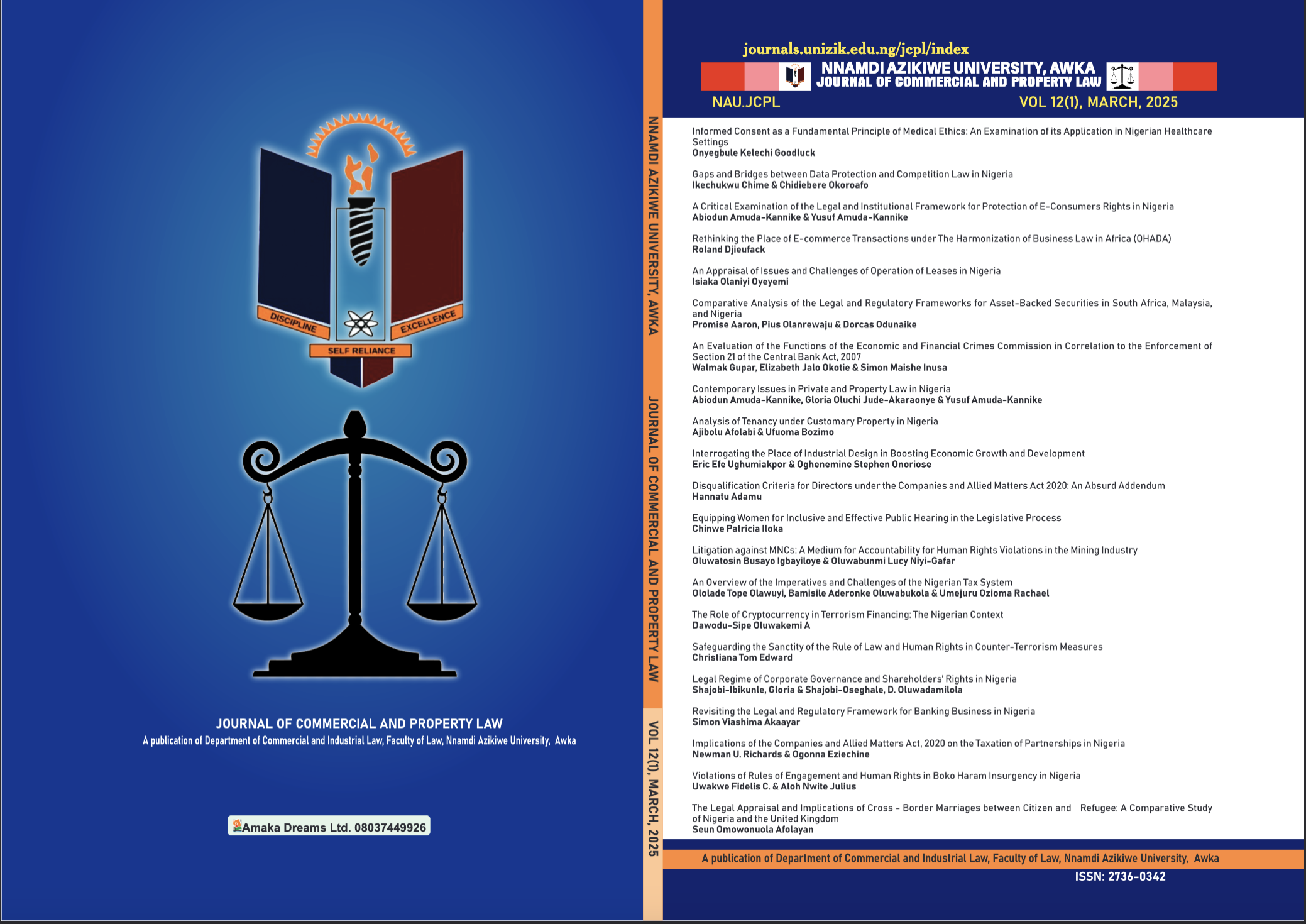The Role of Cryptocurrency in Terrorism Financing: The Nigerian Context
Keywords:
Terrorism, Terrorism financing, Cryptocurrency, Central Bank of Nigeria, Digital Currency RegulationAbstract
The intersection of terrorism and its financing mechanisms has evolved dramatically with the advent of
digital currencies, particularly cryptocurrency. This paper explores the role of cryptocurrency in
facilitating terrorism financing within the Nigerian context, an issue of increasing concern for national
security. Structured into five parts, this study begins with an introduction that sets the stage for
understanding the complexity of terrorism financing in Nigeria and the emergence of cryptocurrency as
a disruptive financial technology. The second part delves into the historical evolution of terrorism in
Nigeria, charting its growth and the diverse methods employed to sustain these illegal activities
financially. This section provides a comprehensive overview of the socio-political factors that have
enabled terrorism to flourish and examines the traditional and contemporary avenues of funding these
activities. This part also provides an in-depth exposition on the role of cryptocurrency in terrorism
financing within Nigeria. This section critically analyses the attributes of cryptocurrency that make it
an attractive tool for terrorists, including anonymity, decentralisation, and the challenges it poses to
traditional financial oversight. Case studies and examples specific to Nigeria will be discussed to
highlight how digital currencies are being exploited for nefarious purposes. In the third part, the focus
shifts to the response of Nigerian regulatory agencies, particularly the Central Bank of Nigeria (CBN),
in combating terrorism financing. This section assesses the effectiveness of current regulations and
enforcement strategies, highlighting both successes and areas needing improvement. It also considers
the broader implications of Nigeria's approach in the context of global efforts to combat terrorism
financing. Finally, the fourth part offers a set of recommendations aimed at enhancing Nigeria's
capacity to mitigate the risks associated with cryptocurrency-enabled terrorism financing. These
recommendations are designed to strengthen regulatory frameworks, improve inter-agency
coordination, and promote international collaboration. The paper concludes with a fifth part by
summarising the key issues discussed and reinforcing the need for robust, adaptive measures to address
the evolving threat of terrorism financing in the digital age.

